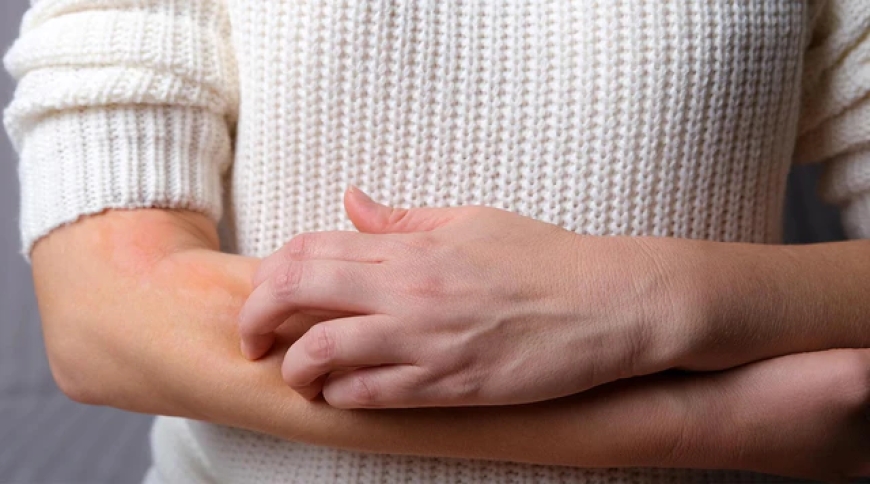Do You Know What Psoriasis Is And How To Treat It?
Psoriasis, specifically plaque psoriasis, is a chronic autoimmune condition that affects the skin,leading to patches of thick, red skin covered with silvery scales. Just search below options and understand a comprehensive approach to care.

These patches can crack, bleed, and cause significant discomfort, including itching and soreness. Understanding what plaque psoriasis looks like and how to manage it is crucial for those affected and their loved ones.
Plaque psoriasis, the most common form of psoriasis, appears as raised, inflamed, red patches covered with a silvery white buildup of dead skin cells. These patches are often found on the scalp, knees, elbows, and lower back but can appear anywhere on the body. Recognizing these signs early on is essential for effective management.
Treatment options for plaque psoriasis are varied and aim to reduce inflammation, slow down the skin cell turnover, and clear the skin of plaques. Treatments range from topical therapies (creams and ointments) to phototherapy (light therapy) and systemic medications, including oral drugs and biologic therapies. The choice of treatment depends on the severity of the condition, the affected areas, and the patient's overall health.
Topical treatments are often the first line of defense against plaque psoriasis. These include corticosteroids, vitamin D analogues, and retinoids, which can help to reduce inflammation and plaque formation. For more severe cases, phototherapy, which involves exposure to ultraviolet light, can be effective in slowing down the growth of affected skin cells.
Systemic treatments are considered when topical treatments and phototherapy are not sufficient. These medications, which are taken orally or by injection, work throughout the body. They include traditional systemic drugs like methotrexate and cyclosporine, as well as newer biologic drugs that target specific parts of the immune system contributing to psoriasis.
In recent years, biologic therapies have revolutionized the treatment of moderate to severe plaque psoriasis. These drugs, tailored to block specific immune system signals that lead to inflammation and skin cell proliferation, offer hope for long-term control of symptoms. However, they come with the need for ongoing monitoring due to potential side effects and risks.
Lifestyle changes and home remedies can also play a significant role in managing plaque psoriasis. Keeping the skin moisturized, avoiding triggers known to cause flare-ups (such as stress and smoking), and using a humidifier to keep air moist can help alleviate symptoms. Surprisingly, air conditioning, while cooling, can dry out the skin and worsen psoriasis for some people, highlighting the importance of maintaining a balanced indoor environment.
Detecting plaque psoriasis early is key to managing this condition effectively. A simple 30-second check for red, raised patches covered with silvery scales on your body can be the first step towards diagnosis and treatment. If you suspect you have plaque psoriasis, consulting a dermatologist is crucial. They can provide a comprehensive evaluation and recommend a treatment plan tailored to your specific needs.
In conclusion, understanding plaque psoriasis and its treatment options allows for better management of this challenging condition. Through a combination of medical treatment, lifestyle adjustments, and support from healthcare professionals, individuals with plaque psoriasis can lead fulfilling lives with minimal disruption from their symptoms. Always seek a doctor's advice for a personalized treatment plan that suits your specific condition and lifestyle.
What's Your Reaction?




























:quality(85):upscale()/2024/01/25/878/n/1922153/f94f61ec65b2bf18018990.47538761_.jpg)

:quality(85):upscale()/2024/01/26/751/n/1922153/6bd241b765b3e57a0c5559.91495665_.png)
:quality(85):upscale()/2024/01/26/759/n/29590734/b7f6660b65b3e8460d7196.77057039_.jpg)












